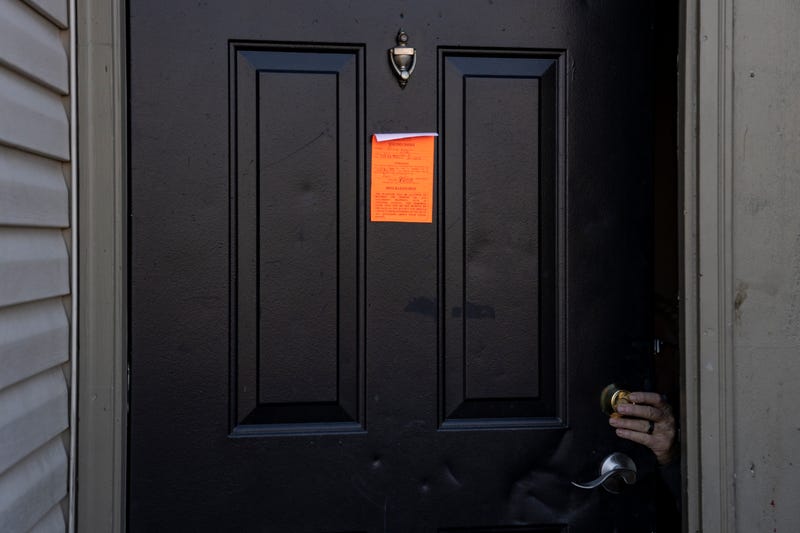
Evicting families from their homes amid the pandemic accelerates the transmission of COVID-19 in communities resulting in thousands of avoidable cases and death, according to a study from UCLA.
The study, published Monday in the American Journal of Epidemiology, found COVID-19 cases steadily increased until finally doubling when protections expired last year. In addition, the mortality rate increased fivefold in the four months after the expiration of eviction moratoriums.
Listen to your favorite News/Talk station now on Audacy.
“Evictions may have accelerated COVID-19 transmission by decreasing individuals’ ability to socially distance,” said Frederick Zimmerman, a UCLA professor of health policy and author of the study. Evicted families were generally forced to sleep in shelters or move in with friends or family, greatly increasing transmission risks.
Zimmerman and his national team of public health researchers investigated data from March through September 2020 in 43 states with moratoriums and the District of Columbia. Seven states have never instituted protections against evictions.
Authors said evictions during that period were responsible for an estimated 433,700 infections and 10,700 additional deaths nationwide. By September, there were 6.3 million cases in the U.S. and roughly 193,000 deaths, according to the Centers for Disease Control and Prevention.
“California might have prevented as many as 187,000 cases of COVID and 6,500 deaths from COVID just by maintaining its eviction moratorium,” said lead study author Kathryn Leifheit.
Researchers concluded the data sufficiently supports “the public-health rationale for eviction prevention to limit COVID-19 cases and deaths.”


